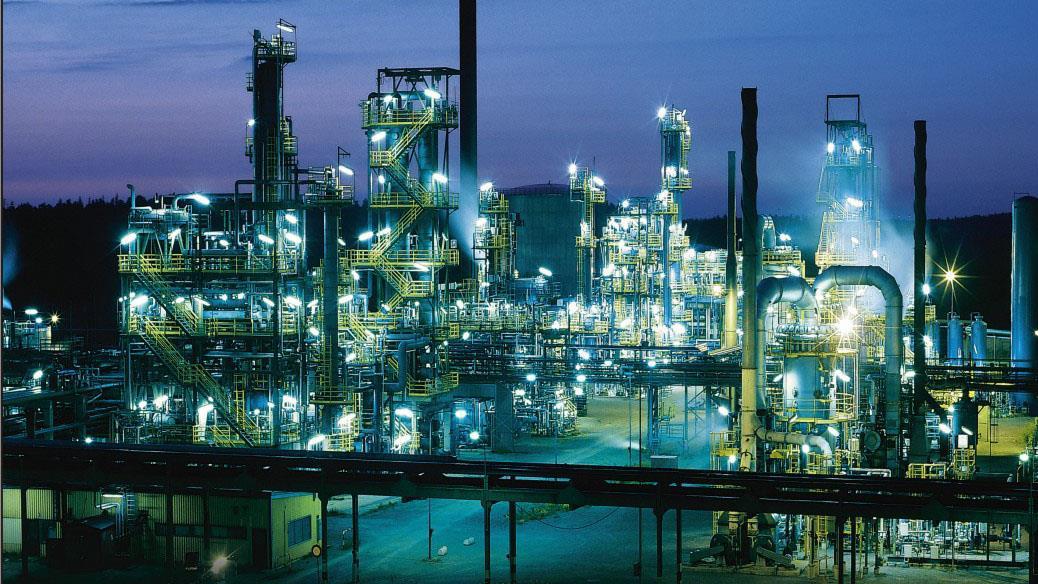(ATF) Mukesh Ambani-led Reliance Industries Ltd (RIL) seems to be still working on the deal with Saudi Aramco to sell a stake in its refining and chemicals business, even as soft oil prices and the pandemic have kept it on hold for over 18 months.
In a sudden statement late on Monday RIL announced the contours of a spin-off plan of its O2C (oil-to-chemicals) business into a wholly-owned subsidiary, that analysts say could be a precursor to attract global investors as well as kickstart negotiations with Saudi Aramco after months of pause.
RIL said it has finalised the spin-off to pursue opportunities across O2C value chain, improve efficiencies through self-sustaining capital structure and dedicated management team to attract dedicated pools of investor capital.
When done, the demerged O2C business, will include oil-to-chemicals business consisting of its refining and petrochemicals assets, fuel retail (a 51%-JV with BP), and the upstream exploration and production business, including the KG-D6 block, financial services, group treasury and the legacy textile businesses.
The O2C business, that historically has been the cash cow for the entire group contributing 62% of the revenue and 58% of the total operating profit in FY20, will be one of what RIL calls “mega growth-engines,” with Reliance Jio -a digital service provider- and Reliance Retail as the others.
The exercise is expected to get all regulatory, legal, shareholder and creditor approvals in the second quarter of the fiscal year. Post spin-off the O2C business, with $42bn of assets, will be 100% subsidiary of RIL, in which the parent will provide loan of $25bn at floating interest rate.
RIL will remain as a stand-alone entity, in which billionaire Mukesh Ambani will retain full control of the business post-restructuring, the company said in a presentation.
Stalled deal
In August 2019, RIL announced its plans to sell its 20% stake in its flagship chemicals and refining business to Saudi Aramco in a deal valued at $15 billion.
The deal, aimed at cutting its massive debt back then and secure an assured supply of crude oil to its refineries, was expected to be closed by March 31, 2020. However as oil prices slumped and the pandemic forced Saudi-Aramco to slash investment spending, the deal was pushed to the back-burner.
Simultaneously, following RIL’s $36 billion rights issue – the largest ever capital raise in India- in May last year the need for a cash infusion had also eased.
Ambani had also raised some $30 billion last year by attracting investments from the likes of Google and Facebook, Silver Lake Partners, KKR, Mubadala, GIC, and ADIA into its digital unit Jio Platforms and Reliance Retail.
Reportedly, the Indian government also threw a spanner in the works after it asked a court to stop the proposed sale to Saudi Aramco, in an attempt to force Reliance to pay arbitration claims in an unrelated case.
Nevertheless, during RIL’s annual shareholder’s meeting last August, Ambani had said that the Saudi Aramco and the BP deals, along with his plans of deleveraging of telecom arm Jio’s infrastructure assets are work-in-progress to help Reliance become “a zero-net debt company within the next 18 months, that is by March 31, 2021.
That month, Aramco’s chief executive officer Amin Nasser also said on a call with reporters that Saudi Aramco was “still in discussion with Reliance, and work is still on.”
As of January this year, RIL had $5bn of net debt and $11bn in non-current liabilities including spectrum, creditors amongst others.
Next investment cycle
According to Morgan Stanley (MS), this de-merger plan is also a step towards monetisation and acceleration of its new energy and material plans into batteries, hydrogen, renewables and carbon capture – all of which point to the next leg of multiple expansion and clarity on the next investment cycle.
Apart from holding controlling and majority stake in O2C (100% post de-merger), Reliance Retail (85.1%) and Jio Platforms (67.3%), RIL as a stand-alone entity will now foray into new businesses based on clean and green development.
However, according to MS, while RIL, with this re-organisation- will have four growth engines- digital, retail, new materials and new energy, “as the market appreciates the value for the first two businesses, we see significant upside risk to earnings and multiples for O2C as RIL invests in new energy/technology.”
The loan of $25bn though, according to Nomura’s analysts, indicates that Reliance could consider even more than 20% stake sale to strategic investors and dedicated private equity investors, which would be taken positively by investors, similar to the large cash raise in 2020 when it sold stakes in Jio and Retail.
That aside, RIL added in the statement that it is embarking on its journey to address $800bn investment needed in organised retail and e-commerce, $300bn in chemicals, and $50bn or more in new energy (renewables) as demand shifts from oil to alternative fuels.
“How RIL allocates the growth capital it generates this coming decade will be key for investors looking beyond the near term. If a third of the investment comes via partnerships, RIL would be free-cash-flow positive despite the capital outlay,” MS said.
Analysts also see a 20% upside in its share prices from the current level (at Rs.2026 per share at NSE at closing on 23rd February.)
READ MORE
























